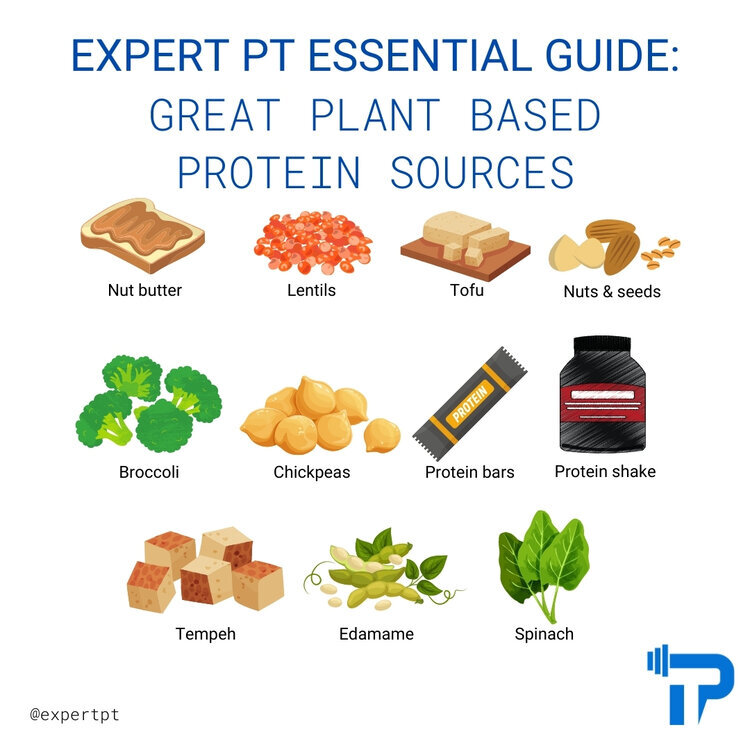What Is The Best Diet / Diet Plan?
Now, anyone who’s been in the fitness industry or has even just kept an interest in fitness for more than a couple of years, will have likely seen many fitness trends come and go. Your best friend might have once said that they’re currently on a diet that is amazing, a real game-changer, it’s changed his/her life and they see themselves doing that diet for the rest of their life……..6 months later they’re not doing that diet, nobody is even talking about that diet anymore, anyone still using Herbalife or Juice Plus?….if you are, then please stop, right now! But there was a time when it seemed that everyone was jumping on meal replacement diet plan.
Diet Plans are abundant, many are very similar and some are downright crazy. This article talks you through the most popular, non bonkers diet plans and dares to answer the question - What is the best diet plan?
Diet Plans
Vegan Diet Plan
A vegan diet contains only plants (such as vegetables, grains, nuts and fruits) and foods made from plants. Vegans don't eat foods that originate from animals, including dairy products and eggs. This diet has numerous health benefits - a Review by Diabetes, Metabolic Syndrome and Obesity: Targets and Therapy found that switching to a Vegan Diet can assist in a reduction in body weight which will of course carry the benefits associated with weight loss, primarily a reduction in risk of disease. But, all robust research out there does stipulate that Vegans should be strategic with their food choices in order to hit a decent amount of protein, as well as prevent certain nutrient deficiencies that come from avoiding food groups (meat). So, if you wish to pursue this diet for ethical or even health benefits, then do your research. A study by the American Journal of Clinical Nutrition found that eliminating all animal products from a diet raises the risk of certain nutritional deficiencies. Micronutrients of special concern included vitamins B-12 and D, calcium, and long-chain n-3 (omega-3) fatty acids.
To give you a little helping hand here are some great vegan protein sources you could incorporate in your diet plan:
Paleo Diet Plan
A paleo diet is a dietary plan based on foods similar to what might have been consumed during the Palaeolithic era, which dates from approximately 2.5 million to 10,000 years ago.
A paleo diet typically includes lean meats, fish, fruits, vegetables, nuts and seeds — foods that in the past could be obtained by hunting and gathering. A paleo diet limits foods that became common when farming emerged about 10,000 years ago. These foods include dairy products, legumes and grains. This diet has benefits as you’re avoiding highly processed foods and other foods that can be deemed as unhealthy, but you’re also avoiding a lot of foods that have been shown to be very healthy. I actually quite like the core of this diet (eat lean meats, fish, fruits, vegetables, nuts and seeds), but I would (and did) include foods such as dairy products, legumes and grains, which I know wouldn’t be completely paleo.
The European Journal of Clinical Nutrition conducted a study assessing the impact on healthy subjects who followed a Paleo Diet Plan for a short term. They observed a drop in weight and blood pressure which will again result in all the health benefits linked to weight loss.
Keto Diet Plan
A ketogenic diet is where you reduce your carbs (carbohydrates) to the point where your body stops using glucose/sugar (the breakdown of carbohydrates) as its main fuel source.
Normally, the carbohydrates in food are converted into glucose, which is then used to power the body and brain by circulating through the bloodstream and providing energy to cells. However, if the body is in ketosis, the liver converts fats into fatty acids and ketone bodies to be used for the same purpose, your body is now utilising the fat from your diet and your body as energy.
There is no doubt that a ketogenic diet will yield fast, weight loss in the short term when compared to most diets, a randomised controlled trial by the New England Journal of Medicine observed groups of individuals who followed either a low carb or low fat / low calorie diet found that those on the low carb diet lost more weight over a 6 month period, they did, however, hypothesise that results suggest the difference in weight loss was due to a greater reduction in overall caloric intake, rather than a direct effect of macronutrient composition.
Amazing yes!? Yes and no! This diet is probably the most unrealistic and unsustainable approach and even with its magical ketogenic powers, it still does not mean that the laws of thermodynamics are exempt, in short, you’ll still need to be in a calorie deficit to get the desired fat loss response.
IIFYM (If It Fits Your Macros) / Flexible Diet
Rather than focusing on calories, IIFYM tracks macronutrients (protein, fat and carbohydrates) instead. This allows for much more flexibility since all foods can be enjoyed as long as they fit into your macros for the day. Now as long as you don’t take this to the extreme and eat any old crap because it “fits your macros”. This can actually be one of the best, most practical strategies…..in my humble opinion.
A very similar approach, that which I use with my clients and for my own eating strategy, is the Flexible Diet. This strategy requires an individual to track and count macronutrient and caloric intake in order to support their body composition goals. The benefit of this diet is that you can eat the foods you like and enjoy, so long as it’s in quantities and ratios conducive to your goals and support the correct level of caloric intake, i.e. deficit, surplus or maintenance calories.
What I love about this approach is that there are no banished foods or food groups. All macronutrients can be enjoyed within a calorie target and macro ratios are conducive to your goal, rather than a diet that focuses purely on weight loss without supporting body composition aspirations and which demonises food types.
Intermittent Fasting
Intermittent fasting (intermittent energy restriction or intermittent calorie restriction) is an umbrella term for various diets that cycle between a period of fasting and non-fasting over a defined period. I’ve used this strategy with a small handful (very small handful) of clients, not because of their body type or fitness goal, but rather their lifestyle. For certain clients, it worked as a great strategy, usually short term strategy to help achieve the calorie deficit needed to obtain fat loss results they were looking for without causing any disturbances to their busy schedule.
Research on Intermittent Fasting efficacy is limited but evolving. A Randomised Controlled Trial by The Journal of Translational Medicine found that the 16:8 fasting strategy yielded better fat loss results than a normal eating pattern when studying the impact on resistance-trained males. So there is research that supports this approach, but more is needed.
Calorie Counting
Eating within a set amount of calories, this allows flexibility as long as you don’t consume more than your recommended calories. Obviously this focuses on the main mathematical equation of fat loss…. which is the numbers of calories coming in versus the number of calories coming out, this can be the most simplest and easiest approach for most people. The problem we have is when people generally eat low nutrient foods, they now just eat less low nutrient foods, this will still result in fat loss, but could also result in reduced health if not done intelligently. So, this approach needs to be accompanied by eating healthier foods and not just reducing the overall calories!
In Summary
Each one of the above diets have their pros and cons from both a health and a body composition point of view. You might be looking at each one of these and thinking “which one is best for me?”.
Unless the choice is obvious from a moral or religious standpoint (for example if you don’t wish to eat meat then vegan or vegetarian diet is the obvious choice), we can be really puzzled as to which one is the best one for us and end up yoyo dieting and jumping between each one.
If you want my advice, I say be open and curious to the benefits of each one…..apart from things like Herbalife or Juice Plus or any other meal “replacement” shakes distributed by unqualified individuals looking to make a quick bit of coin.
What should the best diet plan encourage?
Food awareness - the best diet will make you more aware of what you’re eating, which generally results in you eating less overall and therefore losing fat.
Minimally Processed Foods - there should be a focus on whole and minimally processed foods which are more nutrient-dense and have a higher thermic effect of foods (amount of calories needed to process food for storage and use).
Structure - give people structure, this is a huge one that is often overlooked! The reason the common method telling people to “eat less and move more” generally doesn’t work is that people need more structure than that, everyone has tried eating less and moving more, it rarely works without a more structured and methodical approach, an approach that not only helps you achieve the result you’re looking for but makes you feel awesome whilst on the journey.
All of the diets we have discussed have one main thing in common… they all elicit a calorie deficit - without a calorie deficit, there would be no weight loss. If you take just one thing away from this article, let it be the absolute requirement for a calorie deficit.
Know that there will never be “The Best Diet” as everyone is different, we live different lives, different religions, different beliefs, different genetic makeup etc. Your best approach is to research diets, there efficacy, any potential negative health impacts and then give it a go. It’s trial and error as no one diet suits everyone.
No matter what strategy you implement, you owe it to yourself to stay consistent – consistency is the key!
If you wish to remove the guesswork, then why not try out my One to One Online Personal Training service, where I’ll design both a bespoke nutrition and training programme and fast track your body and health transformation!








